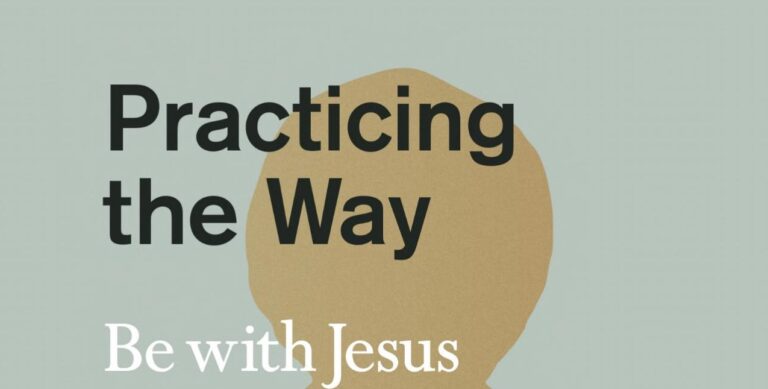Living in Montreal, I am used to encountering deeply secular people. No heaven above, no hell below, no God at all. Can you even show me one solid piece of evidence for your God? Why would you believe in old debunked myths? These are the kinds of questions they ask. How does one share the hope of the gospel with such people?
Depending on the particular stripe of unbelief, it may be to poke holes in the materialist fortress, to point out self-evident echoes of eternity in their own beliefs, to show the moral implications of atheism, or any number of similar approaches. All of these are types of pre-evangelism: tilling up the hard ground of unbelief so that the seeds of faith in Jesus might have a chance to grow.
Over the last few years, however, I’ve been bumping into another kind of person who is asking very different kinds of questions: Are the spiritual beings around us benevolent or malevolent? How can we more deeply connect to the spiritual realm? Or, like one young man asked me: Can I ever be free from the spiritual forces I opened myself up to by engaging in occult practices?
In another case, a new convert at my church shared with me how, soon before coming to Christ, she had travelled to Brazil to experience a shaman-guided experience with the psychedelic Ayahuasca. Thankfully the ceremony was cancelled at the last minute. These are people with a very different set of beliefs than the typical secular young person, and they lead to very different conversations.
What is going on here? It seemed to me that I was encountering a new wave of the New Age.
Growing up, the people I knew of who were into New Age beliefs and practices were generally middle-aged women. In high school, the mother of one of my friends had a room in their house where she “spoke to angels.” For a few bucks, she could even tell you what they had to say. I avoided that room – there were lots of strange things hanging from the ceiling.
Then there was Oprah, who symbolized the smiling non-threatening face of New Age spirituality. All of this seemed to me far more like wishful thinking, scams, and mushy sentimentality than anything engaged with serious spiritual forces.
So my assumption was that the appeal of the New Age was mostly for that demographic. The young people I encountered were either deeply secular or, if their families had not had a decisive break from organized religion, mildly theistic.
The Rise of Long-Form Podcasting and Joe Rogan
While New Age beliefs never went away, they certainly fell off my radar for a few years. Around the time of Jordan Peterson’s rise to fame, I became aware, like many others, of an online world where serious conversations were taking place in long-form podcasts and YouTube interviews. The format seemed to foster nuanced, open, and surprisingly deep conversations at a time when the content of primetime news shows was devolving into 90-second shouting matches between talking heads.
One strange little corner of that online world was Joe Rogan’s podcast. With marathon 3-hour episodes of – shall we say – wildly varying quality, no one (least of all Joe) expected it to become so popular. Rogan is vulgar and blunt, but he has a winsome personality, a good dollop of common sense, and perhaps his most dynamic qualities: an insatiable curiosity and a capacity for wonder. Listen to him and his guests talk about grizzly bears or ancient Egypt and you’ll quickly find your own curiosity and wonder awakened.
Recent controversies have continued to polarize opinion about him and, ironically, broaden his reach. To some he is a dangerous purveyor of misinformation who platforms discredited and dangerous fringe thinkers (and to be fair, he certainly talks to some strange folks); to others he is a voice of sanity and one of the few remaining spaces where free speech is defended. But one thing is for sure: his audience is massive, easily eclipsing other podcasts and cable news shows. And the lion’s share of that audience seems to be young men – millions of them.
These are the men facing the meaning crisis – the existential inheritance of postmodernism. Or, more simply, the meaning crisis is what happens to a soul when you teach it that everything is a cosmic accident and therefore nothing has any real or ultimate meaning. They have no interest in organized religion, but they love the masculine competence and self-respect that the podcast exudes.
To these young people, Rogan offers not only entertainment through interesting interviews but also a taste of re-enchantment through his curiosity and wonder, the promises of technology, and his experiences and endorsements of psychedelic substances as gateways to wisdom and knowledge. This is where I see a connection between Joe Rogan’s massive popularity and influence and the unexpected reappearance of New Age spirituality in young people.
In this article, I want to focus on aspects of Rogan’s project that I think the church should take note of because they are illustrative of much broader societal trends which present Christians with both challenges and opportunities. But first, let’s see how this fits within the broader cultural narrative.
Streams of Re-enchantment
In his book ‘Return of the Strong Gods,’ R.R. Reno, editor of First Things magazine, shows how the disenchantment – a kind of spiritual malaise – that has spread across the West is not simply a byproduct of secularization but the result of a specific strategy adopted in the aftermath of the two World Wars.
Traumatized by the horrors of Auschwitz, Western intellectuals embraced what Reno calls ‘the post-war consensus,’ the idea that strong beliefs, convictions, and claims to truth are what give rise to the passions that caused such atrocities. In order to ensure that such things never happen again, these ‘strong gods’ were cast out and replaced with weak ones: pillars of objective truth gave way to plastic values, solid moral virtues dissolved into liquid cultural preferences.
If this is the case – and I found the argument of Reno’s book to be, on the whole, persuasive – then the intentional suppression of the human hunger for transcendence in the West since the end of the second World War dovetailed with the natural effects of secularization to create a situation where souls have been starved for a taste of eternity as never before.
This dual process of secularization and suppression brought low the ceiling of the world and drained the vibrant colors of life to a paltry grey, leaving young people with a gnawing hunger to come into contact with something beyond what they can see and touch, to be swept up into something bigger than themselves.
Like a mighty river held back by a hastily-built dam, this God-given hunger was artificially restrained. But now it seems to be breaking forth as that dam comes apart in pieces. The wave of re-enchantment washing across the West manifests itself in various ways. In what follows, I select just three streams that have struck me as particularly relevant to Christians, the third of which will bring us back to Joe Rogan.
First, the spiritual shape of political ideologies.
Many seek and find an echo of transcendence in the crusader-like pursuit of political and cultural goals.[1] Invariably these beliefs take the shape of grand narratives that mimic the Biblical story, including some pristine Edenic state, a fall into sin, a path of righteousness, and an eschatological hope. Radical environmentalism, the LGBTQ activist movement, and the progressive Left all fit this pattern and hold increasing cultural and institutional influence in our day.
Some movements on the far-Right such as white nationalism take the same general shape and likewise require a whole-life commitment. Many have noted the religious – even fundamentalist – ethos of these movements, and that those who join them tend to be not only irreligious but also to come from fatherless or broken homes. Those who are without the nourishing roots of faith and family cast about for a cause to live for and a family to join.[2]
Second, a reconsideration of the Judeo-Christian heritage.
Many in our day are irreligious but dissatisfied with the cold cavern that is staunch atheism. Nothing beautiful grows there. So where do they turn? Some – thanks be to God – respond to the faithful apologetics and evangelism of genuine believers. Others take more circuitous routes back towards Christianity, such as those influenced by the work of Canadian psychologist and public intellectual Jordan Peterson. Speaking in the idiom of psychology and in explicitly evolutionary terms, he has been able to get a hearing with a whole swath of people who for one reason or another would not look to a Bible-believing church for the answers to their spiritual malaise.
And yet, as many have pointed out, Peterson has served as a kind of gateway-drug such that some of these people have become genuine believers, entering the Kingdom ahead of their teacher. We baptized one such young man in our church not too long ago. The challenge for such converts may be learning to move beyond YouTube videos and integrating fully into healthy local churches.
But for others, Christianity, even in the psychologized form of Peterson’s approach, holds no interest.
This third form of re-enchantment brings us back to Joe Rogan. Raised vaguely Catholic in an abusive home, he has no interest in the Bible or Christianity. And despite the almost dizzying array of guests he has had on his podcast, I am not aware of a single solid Christian among them, a fact which makes one suspect a certain avoidance.
Rogan represents this third subset of those who are groping for the transcendent. They seem to intuit that ideology-driven utopias are wrong-headed – an instinct which inoculates them to the appeal of the first stream above – but see any kind of return to organized religion as a step backwards. And so they turn to things which promise at least a taste of re-enchantment in our late-modern world. Among them, we now consider two which come up perennially in Rogan’s endless hours of conversation: technology and psychedelics.
Technology
Technology advances our mastery over the material world and the limitations of our bodies. It amazes us even as it reshapes us in subtle ways. For those without the hope of eternity or the expectation of a future Kingdom, the hope offered by technological advance can have an incredible pull.
For example, Joe Rogan is very excited about Elon Musk’s Neuralink, an embedded brain-machine interface that promises you the ability to control computers and machines with just your thoughts – as soon as you let a robot-surgeon implant the microchip directly in your brain. (“It’s like a Fitbit in your skull with tiny wires,” says Musk. I’ll pass). The first human trials are due to start this year.
There is a messianic flavor to the hope such people place in technology, but also a readiness to treat the human body like merely a biological machine that can be tampered with at will. At the heart of this approach is the imposition of the human will on nature, something very much akin to the practice of magic both ancient and modern. C.S. Lewis explains:
“There is something which unites magic and applied science while separating both from the ‘wisdom’ of earlier ages. For the wise men of old the cardinal problem had been how to conform the soul to reality, and the solution had been knowledge, self-discipline, and virtue. For magic and applied science alike the problem is how to subdue reality to the wishes of men: the solution is a technique; and both, in the practice of this technique, are ready to do things hitherto regarded as disgusting and impious—such as digging up and mutilating the dead.”[3]
Or such as splicing microchips into people’s brains.
But the idea that technology can elicit wonder and amazement – what we would call worship – is not a new idea. Historian Davie Nye refers to the technological sublime and Ross Douthat picks up on this in his recent book, The Decadent Society, noting how technological achievements can give people the same sense of awe that natural beauty does and even bring them together in a profound shared experience. Skyscrapers, the Hoover Dam, and the Apollo space program are some examples that come to mind. In a similar vein, John Piper has repeatedly made the point throughout his ministry that there is something innate about the human soul that seeks grandeur, majesty, glory – we go to the Grand Canyon to feel small in the presence of something big.
These concepts flow together and help explain why people are so drawn to every new technological development. There is something transcendent, a kind of gravitational pull of glory, drawing their souls in whether they recognize it or not. For those young people today who are blinded to the soul-satisfying Lord of Glory (1 Cor. 2:8, James 2:1), technology can provide a pale imitation. But for parched souls, even a few drops is welcome.
Psychedelics
We now turn to the last but most foreboding thing I have noticed on Joe Rogan’s podcast. For years he has been openly advocating for the use of various psychedelic and mind-altering substances as pathways to mental, emotional, and spiritual growth. He not only shares his own experiences but often has guests on his show who discuss and encourage them as well.
The promise that ingesting the right food might unlock hidden knowledge should strike the Christian ear with a dark echo – where have we heard this before? Our first parents were told a version of this very same promise in the garden. Milton put that temptation memorably in the words of the serpent:
“And what are Gods that Man may not become
As they, participating God-like food?”[4]
It is for this reason that Terrence McKenna, one of the early proponents of psychedelics, titled his book Food of the Gods and, building on that legacy, Graham Hancock – one of Rogan’s favourite repeat guests – has written Fingerprints of the Gods and Magicians of the Gods. Hancock gives a wholehearted endorsement of psychedelics as a pathway to ancient knowledge and wisdom.
What is not often said up front is that such ‘knowledge and wisdom’ is mediated through mysterious entities and intelligences that one encounters during these experiences. While some believe these entities to be constructions of their own subconscious minds, many others are certain that they are coming in contact with non-human beings.
We are now well into the territory of the New Age movement and even the occult. Christians have categories for such beings, and it should be clear that any entity making contact through an activity that is explicitly forbidden in the Scriptures is not in submission to God.
But I can see why people would be drawn to these beliefs and practices. They offer what seems like a meaningful connection to the spiritual realm. They also work much like conspiracy theories, appealing to one’s pride by promising a secret insider knowledge of the world. People engaged in the New Age can and do make contact with personal spiritual forces, and aside from the thrill of that experience, there is the added buzz that comes from knowing something that so much of society seems oblivious to.
New Age beliefs and practices also make no personal moral demands. There are no ten commandments, no golden rule, no ultimate moral Judge. This makes it particularly compatible with the moral relativism of our age and the ongoing sexual revolution. Lastly, there is no creed or structure of authority like in a church. This resonates with our current cultural suspicion of authority and institutions.
Rogan is emblematic of a broader movement of otherwise respectable people – intellectuals, celebrities,[5] journalists, scientists – who are increasingly looking to psychedelics for revelations, wisdom, and to quiet the incessant inner dialogue of the restless self. The dark cloud of opprobrium that hung over the whole psychedelic project in the age of the 60’s counter-culture and Timothy Leary has largely dissipated.
A new generation has come of age. This movement seems poised to continue as mainstream academic and medical institutions begin taking the therapeutic potential of these substances more seriously through clinical trials and research. In Canada, for example, the government has begun the process of approving psychedelics for certain cases and making them available for doctors to try.[6]
The Biblical prohibitions and numerous testimonies from users of these drugs make it clear that this is spiritually dangerous. I would never advise anyone to take them. And yet what many people may not know is that there is a growing body of evidence that these substances, used in controlled environments and with low dosages, can be helpful in alleviating various ailments such as depression, OCD, PTSD, and compulsive addictions.
Frankly I am not sure what to do with that, not being any kind of expert on these things. But given our culture’s unquestioning adoption of therapeutic categories, it is hard to see how the general public, and probably some professing Christians, will be able to resist the purported benefits of psychedelics.[7] After all, spiritual harm is no longer a meaningful category.
One need not be a prophet to see that the use of psychedelics will be on the rise for some time to come, and by all indications Canada will be on the leading edge. How long before pastors in this country are facing questions about the use of psychedelics to treat mental health problems?
Is it possible that some will come to see a distinction between responsible medical use of such substances and purely recreational use? I don’t pretend to know. We do know however from church history that theological and ethical clarity comes when the church is forced to confront new challenges. We will have to think carefully and biblically about how to navigate such questions.
Gospel
When that young man I mentioned at the beginning asked me if he could be free from spiritual oppression, it was a wide-open door for me to share with him about how Jesus Christ is Lord and King of all creation, with absolute unquestioned authority over every spiritual being. Christ’s death on the cross and glorious resurrection disarmed and defeated those spirits who live in rebellion against Him. It was amazing to me to be speaking about these profound truths without having to first argue about theism or the supposed conflict between reason and faith.
As the process of re-enchantment continues, I believe we will see more and more people dissatisfied with the hollow cave of materialistic atheism and seeking experiences of the transcendent. Will the church be ready to offer compelling answers to their questions? And will the worship and fellowship of the church be so imbued with the presence and power of God that visitors stop and say “God is really among you” (1 Cor. 14:25)?
May God move in mighty ways to not only draw the lost to Himself but to revive our churches to be vibrant outposts of Kingdom life. “Will you not revive us again, that your people may rejoice in you?” (Psalm 85:6). By God’s good design, many people are searching, seeking in politics, psychology, or psychedelics what they can only truly find in Him – life eternal and union with the holy and Transcendent One.
[1] Although numerous thinkers have pointed this out, I’m indebted to an essay by Joseph Bottum from 2014 called “The Spiritual Shape of Political Ideas” found here: https://www.washingtonexaminer.com/weekly-standard/the-spiritual-shape-of-political-ideas.
[2] See the work of Mary Eberstadt for an exploration of this connection between broken families and the loss of faith.
[3] C.S. Lewis, The Abolition of Man, 77.
[4] John Milton, Paradise Lost, Book 9, Lines 716-717.
[5] For example, the recent Netflix documentary Have a Good Trip. Which, apparently, is a collection of celebrities recounting their psychedelic experiences.
[6] Some doctors, therapists get Health Canada permission to use magic mushrooms as noted here: https://www.cbc.ca/news/canada/london/some-doctors-therapists-get-health-canada-permission-to-use-magic-mushrooms-1.5834485
[7] There is already some evidence of this happening. Rav Arora, a Canadian writer and journalist whose influence is on the rise, writes on his Substack about convincing a “conservative Christian” friend of his to try psychedelics and about how positive the experience was. https://ravarora.substack.com/p/a-wondrous-psilocybin-microdose
























